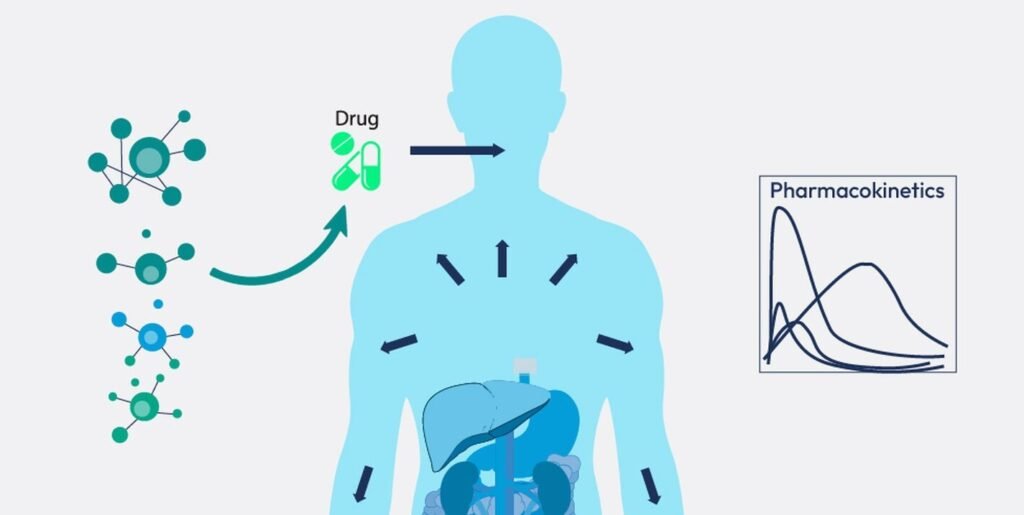DMPK & ADME
DMPK (Drug Metabolism and Pharmacokinetics) and ADME are critical in drug development for understanding how a drug behaves in the body, ensuring safety and efficacy. DMPK studies how drugs are absorbed, distributed, metabolized, and excreted (ADME), guiding optimization of bioavailability, half-life, and dosing.
ADME studies assess how drugs are absorbed, distributed, metabolized, and excreted, influencing dosing and safety. Combined with DMPK, they predict drug behavior early using assays and models, helping design safer, effective therapies and speeding regulatory approval—key for advancing precision medicine.

• In vitro & In vivo ADME
Integrated in vitro and in vivo ADME studies reveal how drugs are absorbed, metabolized, and cleared, offering vital insights into bioavailability, stability, and safety. Coupled with PK/PD modeling—which links drug exposure to therapeutic effects—these tools optimize dosing, predict outcomes, and accelerate drug development with greater precision and efficiency.
• Bioanalytical Methods
Bioanalytical methods analyze drug, metabolite, and biomarker levels in biological samples using techniques like LC-MS, HPLC, and GC. Offering high sensitivity and accuracy, they are vital for pharmacokinetics, toxicology, and biomarker studies, supporting drug development, clinical trials, and personalized medicine to ensure safety and efficacy.
• Drug-Drug Interaction Assessments (DDI Assessments)
DDI assessments evaluate how multiple drugs interact, affecting their pharmacokinetics and pharmacodynamics, which can alter efficacy or increase toxicity. Using in vitro and in vivo tests, they identify enzyme and transporter interactions to predict combined drug behavior. These studies guide safe dosing, support regulatory approval, and ensure patient safety, especially for those on multiple medications.
